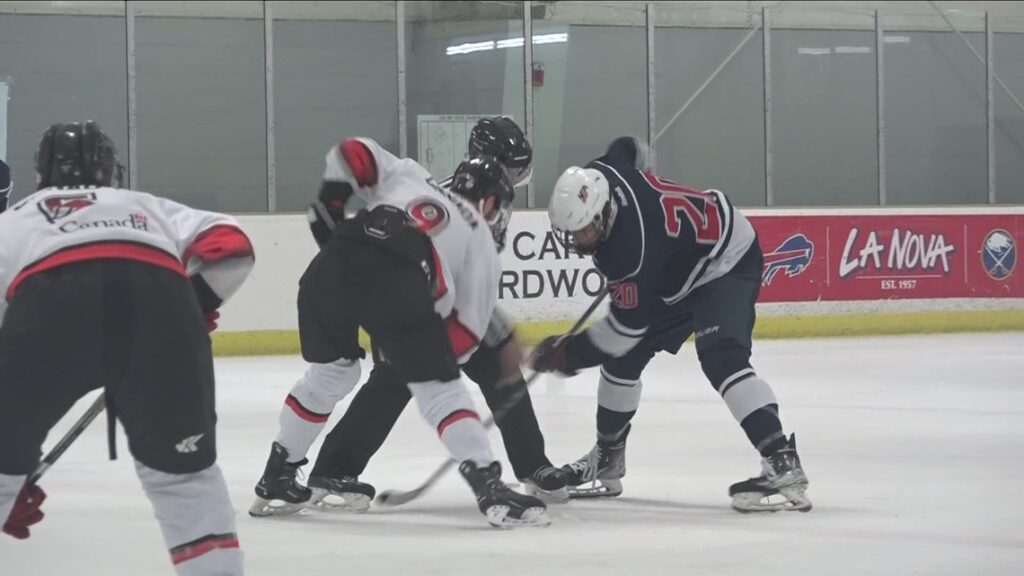Named after Jeff Sauer, former head coach of the U.S. Men's Deaf Team, the event has given hearing-impaired athletes the opportunity to compete at the highest level.
AMHERST, N.Y. — The sound of hockey often brings to mind the loud horns and whistles that punctuate the highs and lows of the game we all know and love.
But for Max Finley and Peter Gintoli, two U.S. men's deaf team forwards, on-ice communication takes a different form.
“I'm profoundly deaf in both ears, so I can't hear anything out of either ear. For me, it's complete silence,” Finley said.
“You can hear the whistle on the ice, but it's still not as comfortable without hearing aids,” Guintoli said.
Whether it's having an interpreter on the bench or flashing strobe lights along the rink instead of a whistle, hockey players who are deaf or hard of hearing adapt to any challenge they face.
“You look up, you hit your stick, you’re really just trying to get their attention and see where everyone is,” Finley said. “I know there are some people who look into the glass to see what's behind them while they're playing.”
These are all ways players like Finley and Gintoli were able to skate at the inaugural Jeff Sauer International Deaf Hockey Series held last weekend at Northtown Center in Amherst.
Sponsored by AHIHA (American Deaf Hockey Association) and the Stan Mikita Hockey School for the Deaf, this tournament brings together the best players from four different countries.
The men's team included the United States, Canada, the Czech Republic, and Finland, while the women's team consisted only of the United States and Canada.
Named after former head coach of the U.S. Men's Deaf Team, Jeff Sauer, the event has given deaf athletes the opportunity to compete at the highest level.
“It means a lot to be able to put on a USA jersey and represent the United States,” Finley said.
“We have a lot of guys in our corner that we've known for almost 20 years, so it means a lot to be able to play for them and also play for ourselves,” Gintoli said. said.
The four-day round-robin event helps showcase the athletes' abilities and highlight what the sport has given them.
“This is probably my seventh tournament and I'm proud to be able to participate in all of these and still play at 32 years old,” Guintoli said.
“We are hockey players just like everyone else, and at the end of the day, our hearing loss does not define us,” Finley said. “We're out there, normal people doing normal things, loving the game of hockey just like anyone else. It gave us the opportunity to just get together and play the sport we love.” It gives me a great opportunity.”
At the end of the tournament on Championship Sunday, Team Canada defeated the United States in the men's gold medal match with a final score of 5-4. The American team won the silver medal.
If you would like to learn more about Deaf or Hard of Hearing hockey and how you can get involved, please visit our website AHIHA.org to learn more.

